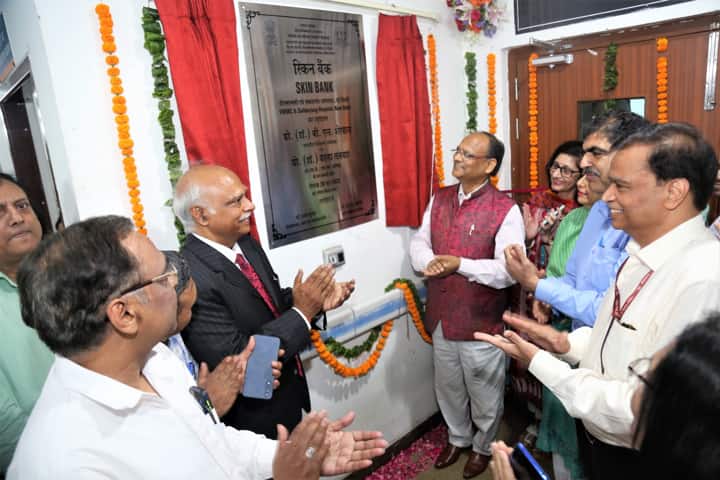

North India's first skin bank at New Delhi's Safdarjung Hospital will help patients suffering from burns, injuries, skin cancer and ulcers (Pic Courtesy Twitter/@SJHDELHI)
One of New Delhi’s premier Government institutions, the Safdarjung Hospital was in news as it opened not just the Capital’s but North India’s first skin bank. Here the skin of deceased donors will be stored to help needy patients.
The bank was inaugurated by Dr. B.L. Sherwal, Medical Superintendent of SH. Describing it as a momentous occasion he said: “The skin bank is a feather in the cap of the hospital and a significant achievement. The donated skin will be very helpful in treating burns, especially patients with extensive burns and with other wounds.”
At present there are 16 skin banks in India of which seven are in Maharashtra, four in Chennai, three in Karnataka and one each in Odisha and Madhya Pradesh.
Talking to the media, Dr. Shalabh Kumar, Head of Department Burns and Plastic Surgery said earlier people would call them asking for skin donations but they were unable to act on it. The setting up of this bank will now be of great assistance.
In India every year seven to 10 million people sustain burns and out of these 1.4 lakhs lose their lives while 1.5 lakh develop various deformities. Cadaveric skin will help in reducing the mortality and increase the survival rate of these patients. If severely burnt or damaged skin is not covered with a skin substitute, it can cause infection.
Apart from burn cases, skin grafting will also help patients with skin infections, skin ulcers, large wounds and also those who have undergone skin cancer treatments like Mohs surgery.
Explaining the process of skin grafting, Kumar said that the skin of a deceased person has to be donated within six hours of death. It is then extracted, harvested and processed, which takes five to six weeks.
While the kidney and liver can’t be stored and have to be transplanted within a few hours of donation, skin can be stored for three to five years, he said.
Further, any donor skin can be used in any patient. There is no need for immunosuppressants and steroids in the post-operative period.
Taiwan detected one sortie of Chinese aircraft, eight Chinese vessels and one official ship until…
Baloch activist Mahan Baloch delivered a powerful intervention that shed light on the ongoing human…
Prime Minister Narendra Modi spoke with the Myanmar military junta chief, Min Aung Hlaing, and…
The United Nations Human Rights Council (UNHRC) witnessed a strong intervention from Jamil Maqsood, the…
Union Home Minister Amit Shah on Saturday hailed the success of security forces in a…
India has launched 'Operation Brahma' to support earthquake-impacted Myanmar. Indian Air Force C-130 J aircraft…